
The Golden Age of Greece, a period flourishing from the 5th to the 4th century BCE, was an era of remarkable achievements in art, science, philosophy, and governance. This era, often exemplified by the city-state of Athens, laid the foundational stones for modern democratic and philosophical thought. With a society that valued intellectual rigor and civic engagement, this period became a crucible for groundbreaking ideas and forms of government that continue to influence the world today.
The Rise of Democracy in Ancient Greece
At the heart of Greece’s Golden Age was the city-state, or ‘polis,’ of Athens, where a revolutionary and new system of governance was taking root – democracy. Unlike the monarchies and oligarchies that dominated the ancient world, Athenian democracy was characterized by the active participation of its citizens in the political process. It was an unprecedented system where public officeholders were chosen not by birthright, but often by lot, and all male citizens were invited to contribute directly to the decision-making in the assembly.
This democratic system stood in stark contrast to the rigid hierarchies common in other contemporary societies. It was in Athens that the concept of ‘demos’ – meaning the people – was fully realized in governance, fostering a sense of community and shared responsibility. The assembly, known as the ‘Ekklesia’, was the main legislative body, where citizens could debate and decide on policy. The establishment of the ‘Boule’, a council that managed daily affairs, further diversified political discourse and the checks on power. Although this form of democracy did not include women, slaves, or non-citizens, its spirit of civic engagement was innovative for its time and would later inspire more inclusive forms of governance.
Philosophy in the Golden Age
In parallel with political advancements, philosophy in Greece reached unprecedented peaks during the Golden Age. Thinkers such as Socrates, Plato, and Aristotle laid the foundational principles that underpin Western philosophy. These philosophers didn’t just question the physical world and the cosmos but sought to understand human nature, ethics, and the ideal state of governance.
Socrates, through his dialectical method, encouraged critical thinking and the importance of questioning. Socratic dialogue engaged individuals in examining their beliefs, steadfastly holding that ‘the unexamined life is not worth living.’ Following Socrates, his student Plato established the Academy in Athens, the first institution of higher learning in the Western world. Plato’s works including ‘The Republic,’ explored justice, the ideal state, and the philosopher-king’s role in governance.
Aristotle, a student of Plato, further expanded on these ideas, developing a system of logic and ethical theories that continue to be studied today. His contributions to metaphysics, biology, ethics, and politics formed a comprehensive body of work that has been a cornerstone of Western education and thought.
The Artistic and Cultural Maturity of Greece
Alongside its democratic and philosophical achievements, the Golden Age of Greece witnessed significant developments in art and culture. The era produced timeless works of art and architecture such as the Parthenon, a symbol of Athenian grandeur and artistic precision. Sculptors like Phidias and Polyclitus advanced techniques that brought realism and human emotion to statuary.
Drama also flourished during this time, with playwrights such as Aeschylus, Sophocles, and Euripides transforming Greek theatre. Their works explored complex themes of morality, fate, and the human experience, elements that continue to resonate in modern storytelling.
Literature, too, thrived in the Golden Age. Herodotus and Thucydides laid the groundwork for the practice of historiography, documenting not only events but analyzing causes and effects, thereby setting standards for future historians.
The Enduring Legacy
The rich tapestry of achievements in the Golden Age of Greece created a lasting legacy that shaped the foundations of Western civilization. The democratic principles of governance, the philosophical inquiries, and the artistic and cultural innovations of this epoch still influence us. From concepts of democratic governance to the rich tradition of philosophical inquiry and cultural expressions, the echoes of Greece’s Golden Age reverberate in contemporary society.
In conclusion, the Golden Age of Greece was not just a period of ancient glory but a time that profoundly influenced subsequent generations. Its democratic ideals, philosophical inquiries, and cultural achievements continue to inspire, proving that the insights garnered in ancient Greek society remain relevant in addressing the complexities of the modern world.
The Golden Age of Greece was a period of remarkable achievements in art, science, philosophy, and governance. Athens, a city-state, exemplified this era by pioneering democratic governance and fostering intellectual and artistic pursuits. 
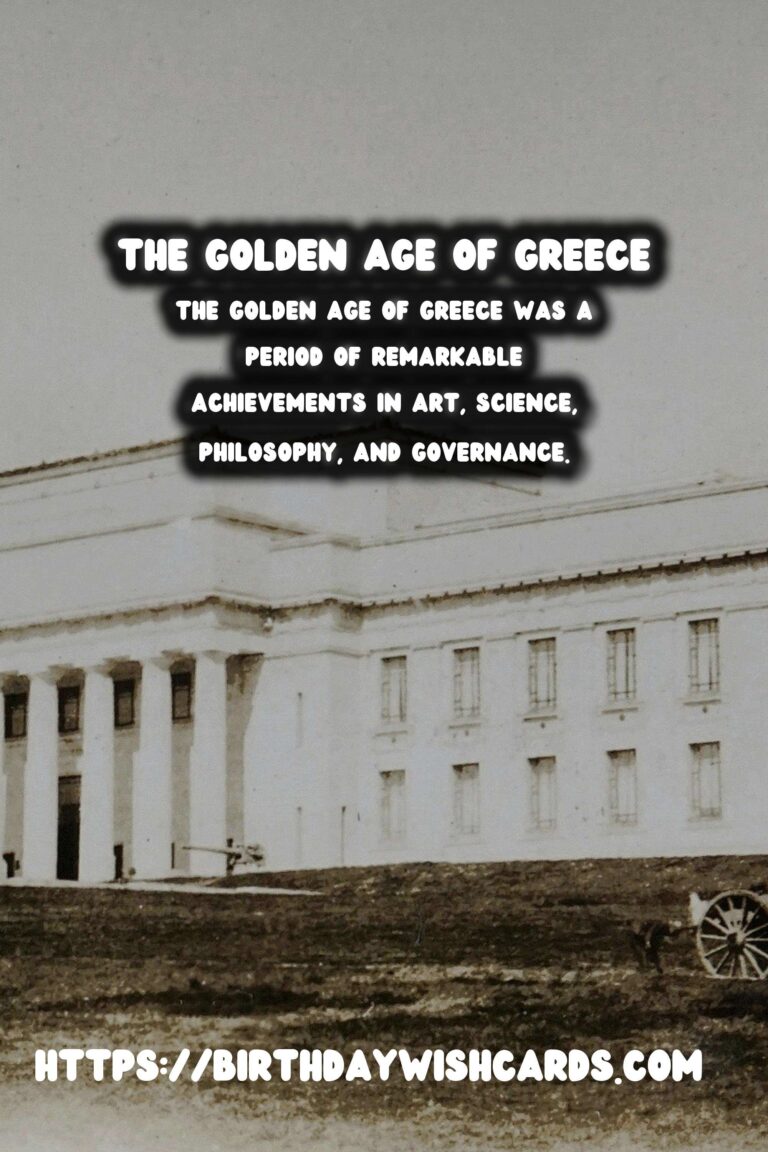
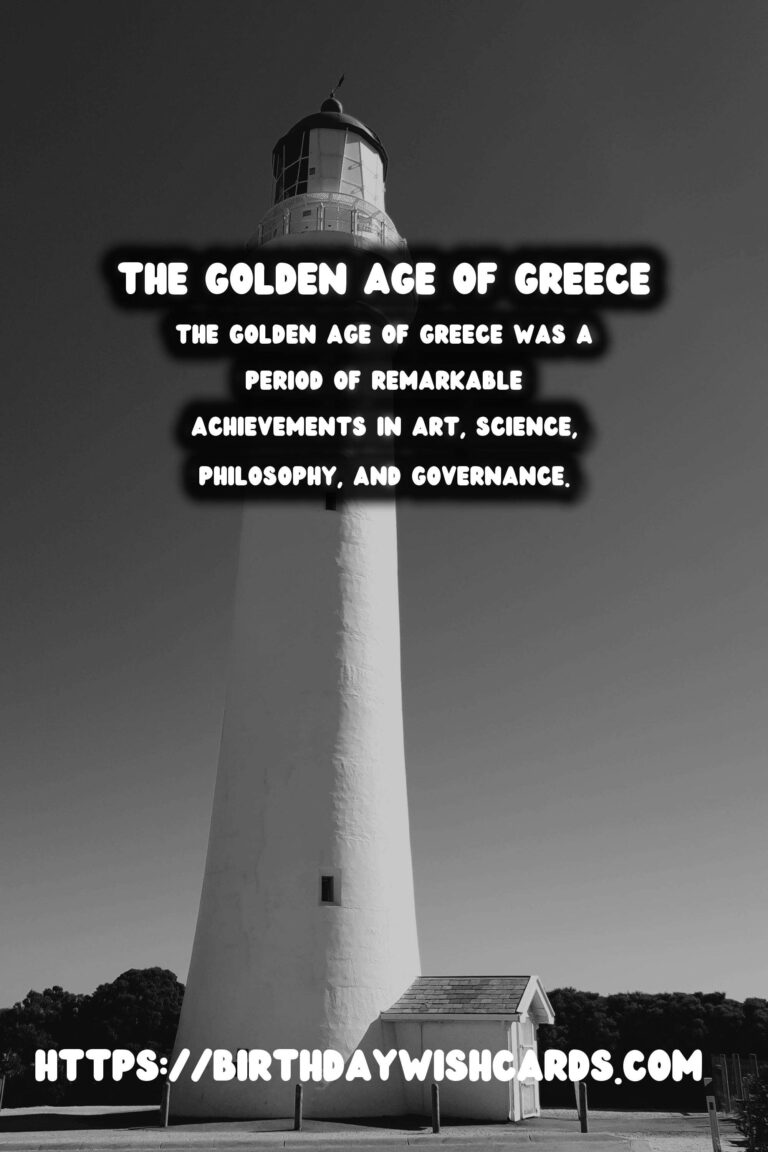
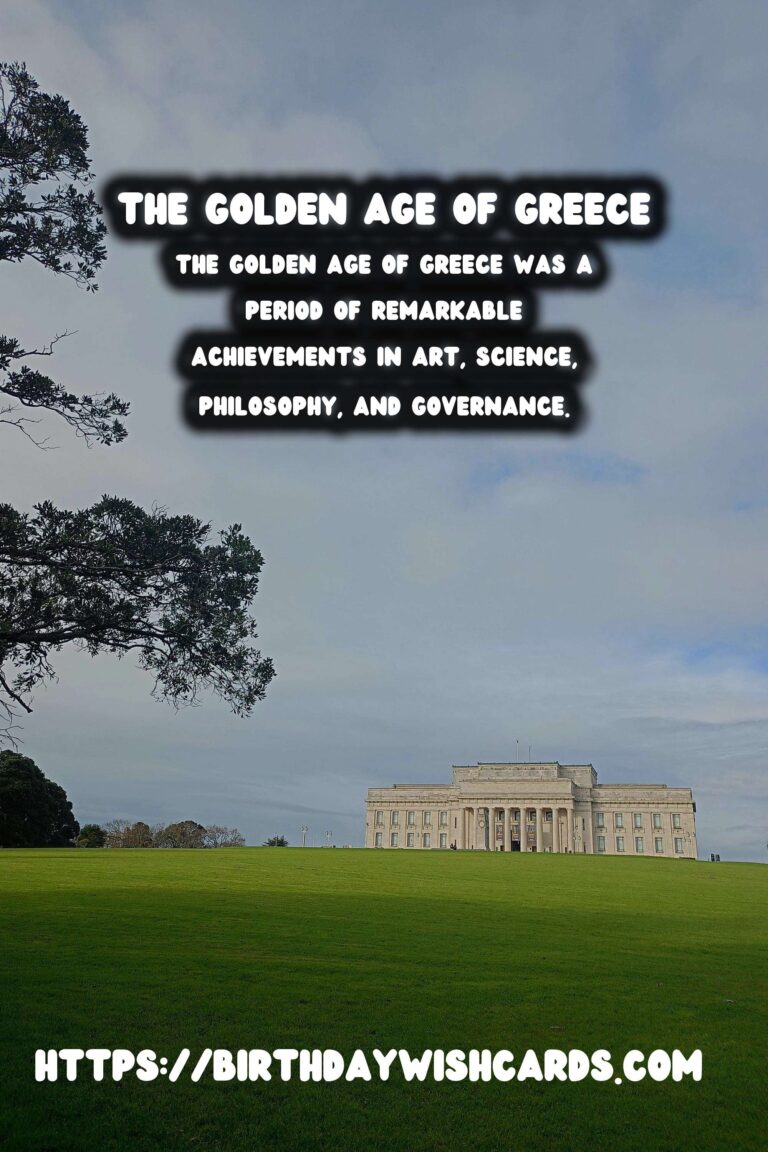
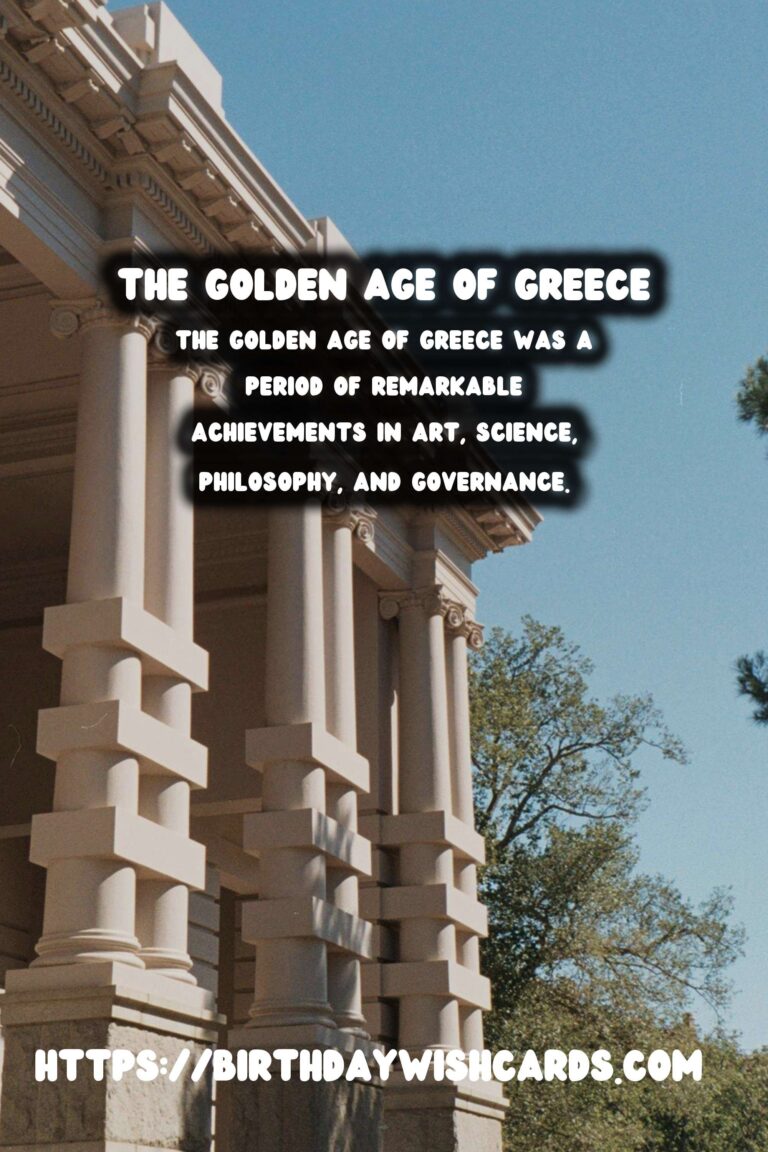

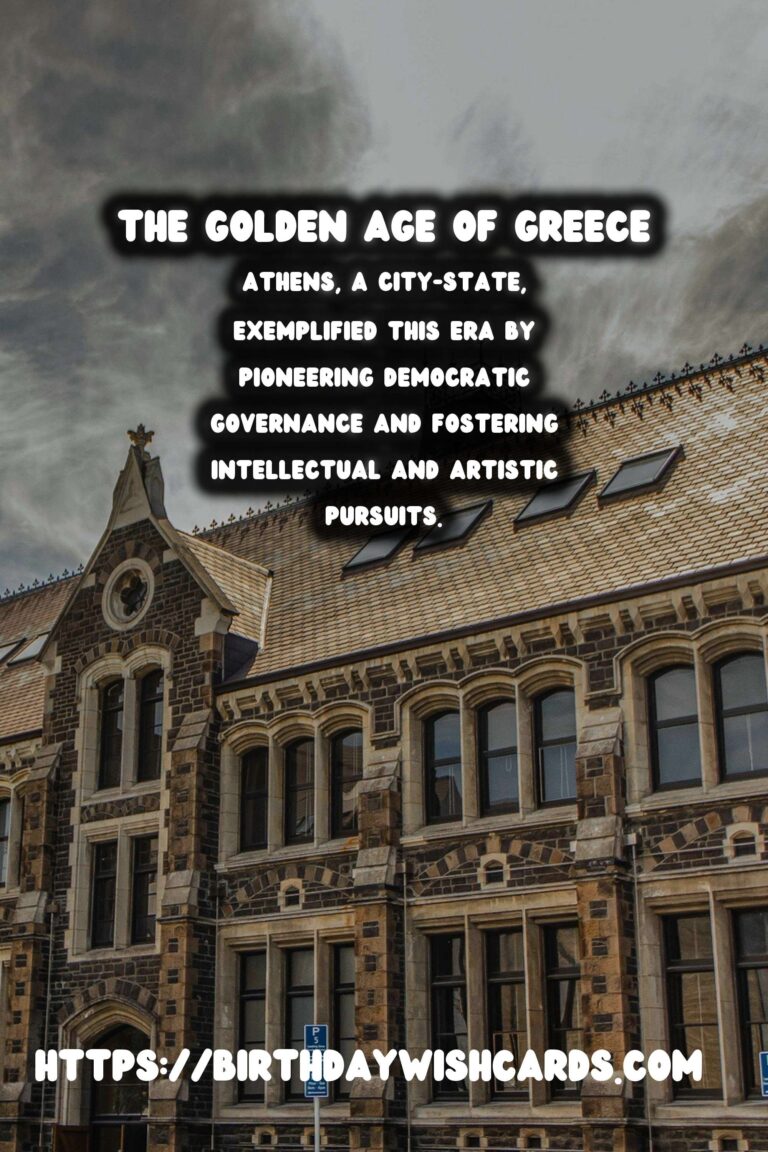
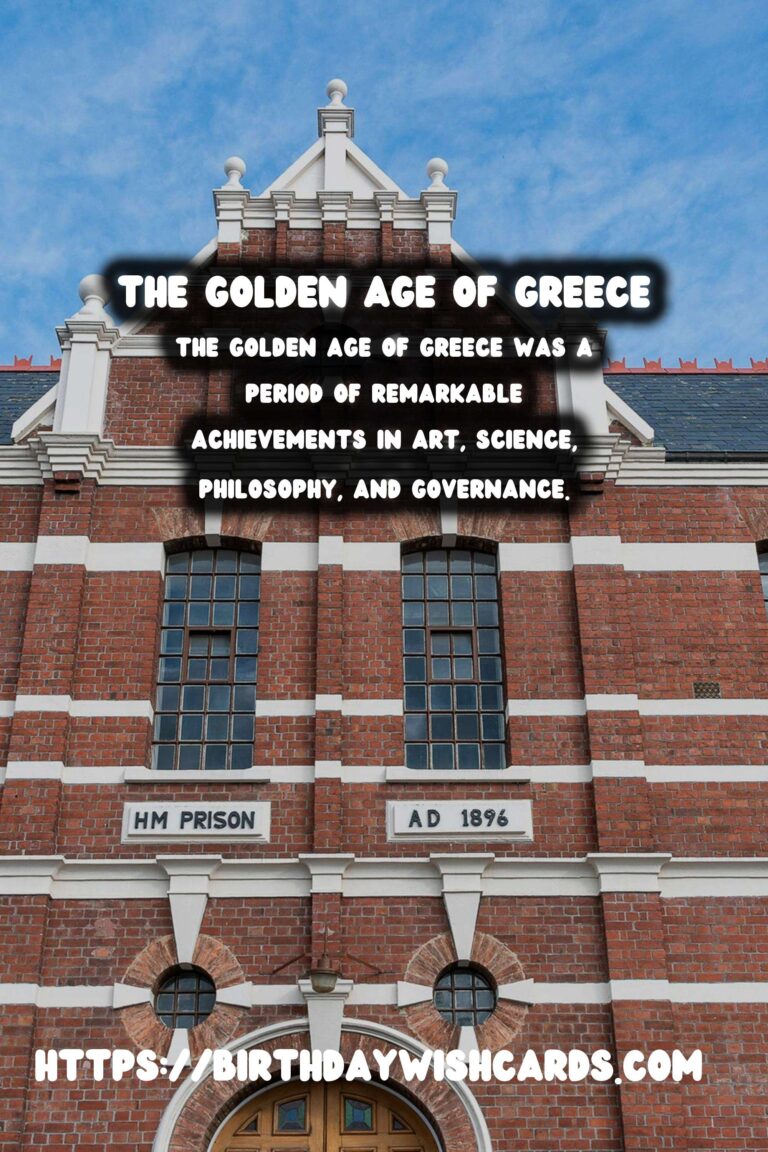

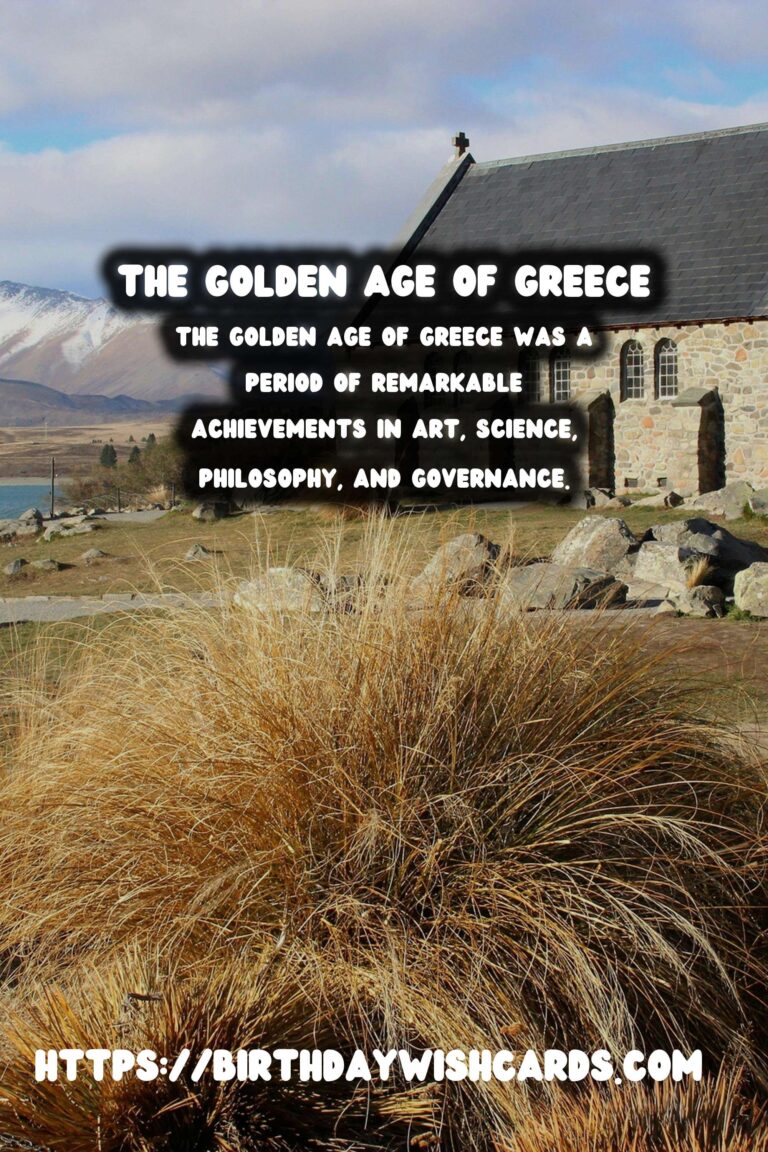
#AncientGreece #GreekPhilosophy




